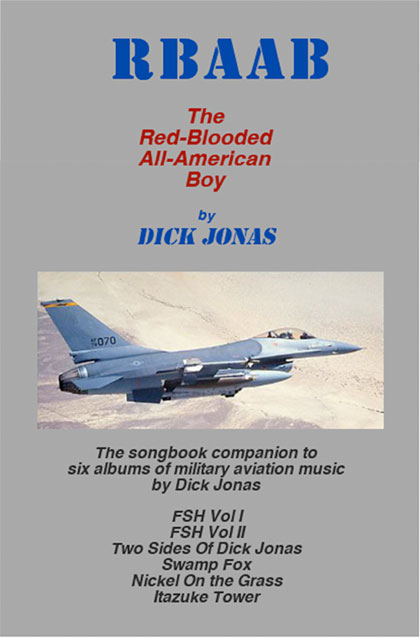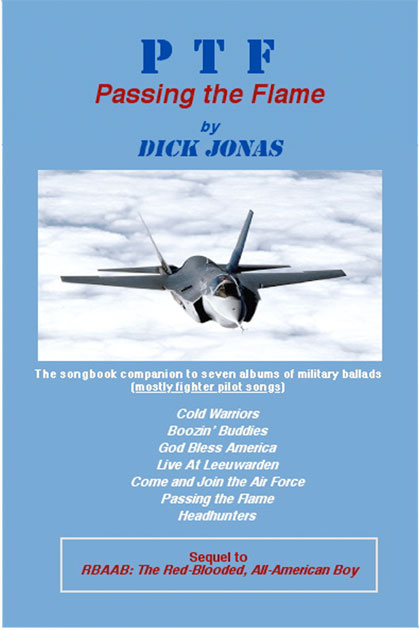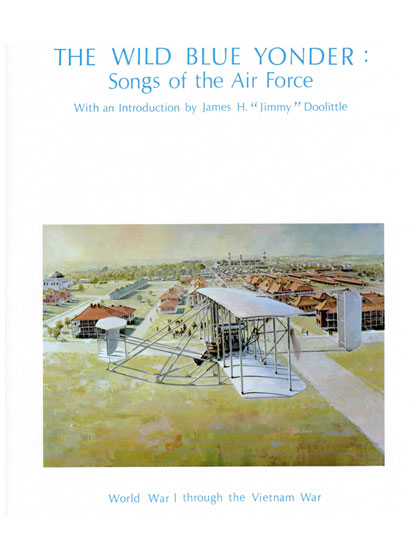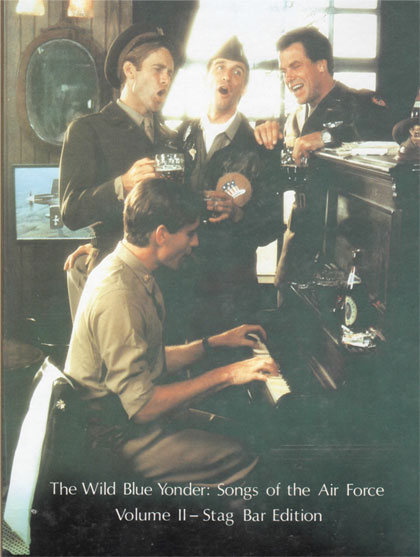
It has been said that Vietnam was the wrong
war, and the wrong war doesn't bring out songs.
That's bullshit.
There were the protest songs and the protest
singers of the late sixties and early seventies. Almost
every anti-war rally formed around a nucleus of
string-players, song-singers, and public address systems.
The songs were there because a lot of people
thought Vietnam was the "wrong war."
Let me tell you about another song-singer: The
soldier on the battlefield. The guy with a gun in his
hand. The man in the cross-hairs of an enemy rifle.
He sang, too.
He wasn't singing because it was the "wrong
war" or the right war. His songs were neither disloyal
nor particularly patriotic. He sang because he was
bored, or scared, or because he was deliriously happy
that the golden BB with his name on it had misfired.
He sang because he was sad and lonely and a long
way from home. He sang through his tears as he bade goodbye to a friend in a body bag.
He was at war, and war is not the normal human
condition. His songs helped him to survive.
Humans deliver their most poignant profundities
either from the depths of despair or the peaks of
ecstasy and when delivered by a poet at the business
end of a gun barrel, they end up in a song as often as
not.
The right or wrong of the war doesn't have a
damn thing to do with it.
RBAAB contains the lyrics and accompanying
war stories to 76 warrior ballads, mostly about
Americans in the Vietnam War. |

The aim of this book, along with its predecessor and the associated CD albums, is to preserve
and perpetuate the legacy of the warrior musician. They are the people who create and perform primarily
what are known as fighter pilot songs. Not exclusively; one of my favorite songs in this collection is
about today's biggest bomber, the BUFF. Irv LeVine has added two songs about tanks and the people who
man the mighty Abrams.
No warrior ever undertakes a mission alone. If he succeeds, if he wins the battle, there are always
others who deserve the medals along with him.
Similarly, one never writes a book all by himself.
Seventeen people helped me create this one.
Along with me and Irv LeVine, from the Incountry
crew are Toby Hughes, Chip Dockery, and
Bull Durham.
Alumni (I'm one, too) of the Juvat Boys Choir, representing the 80th Fighter Squadron Headhunters,
Kunsan AB ROK made their contributions.
Fresh Out of the Box, five young Air Force female
combat flyers, blazed a pioneering trail in the
field of military folk music.
Along with the girls, representing the newest
generation of warrior musicians are Dos Gringos — a
pair of F-16 jocks who play a mean guitar.
Others who helped with the authoring include
Greg Anders, who wrote the vignette about his father,
Apollo 8 astronaut Bill Anders. My long time
friend, Col Ken "Bat" Krause wrote the blurb for the
A-10 song. He flew the Hog, he should know.
I especially appreciate the help of Erosonic's
#1 Roadie, my bride, Miss Mary.
|

There are 666 songs in this book. Collected and compiled by Bill Getz, the songs cover all the wars
America has fought with airplanes, up through Vietnam. Bill is a retired Lieutenant Colonel of the U. S.
Air Force. He flew both bombers (B-24) and fighters (P-51) in WW2.
The introduction is penned by Gen. Jimmy
Doolittle, Medal of Honor winner, and one of America's
brightest aviation luminaries. |

The Stag Bar Edition of the Bill Getz collection includes 333 songs which would have gotten you a
trip to the woodshed if you had sung them in polite company when you were a youngster.
But, it's the warrior's vernacular, and the warrior is allowed his own special dialogue. He's earned it
by facing down the enemy.
So; enjoy. But, be selective about who you share them with. |
Surprisingly, from time to time fighter pilots do think and talk about things other than flying. Sometimes,
those ideas can cover the entire spectrum, from inane idiocy to the impossibly profound. We learned early to think
the unthinkable, ask the unaskable, and attempt the impossible. The battlefield is no place for wimps.
A fighter pilot sees the world differently from other people. His world is bigger, it is more challenging and
more intense. Sometimes it can cost him his life. On rare occasion, it has been known to cost him his reputation.
This series of books is about how Dick Jonas, fighter pilot, sensed his universe during the past 40 years.  |










